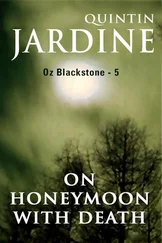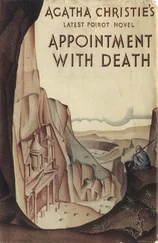John Donne - Devotions Upon Emergent Occasions; Together with Death's Duel
Здесь есть возможность читать онлайн «John Donne - Devotions Upon Emergent Occasions; Together with Death's Duel» — ознакомительный отрывок электронной книги совершенно бесплатно, а после прочтения отрывка купить полную версию. В некоторых случаях можно слушать аудио, скачать через торрент в формате fb2 и присутствует краткое содержание. Издательство: Иностранный паблик, Жанр: foreign_prose, foreign_religion, Философия, foreign_psychology, foreign_antique, на английском языке. Описание произведения, (предисловие) а так же отзывы посетителей доступны на портале библиотеки ЛибКат.
- Название:Devotions Upon Emergent Occasions; Together with Death's Duel
- Автор:
- Издательство:Иностранный паблик
- Жанр:
- Год:неизвестен
- ISBN:нет данных
- Рейтинг книги:4 / 5. Голосов: 1
-
Избранное:Добавить в избранное
- Отзывы:
-
Ваша оценка:
- 80
- 1
- 2
- 3
- 4
- 5
Devotions Upon Emergent Occasions; Together with Death's Duel: краткое содержание, описание и аннотация
Предлагаем к чтению аннотацию, описание, краткое содержание или предисловие (зависит от того, что написал сам автор книги «Devotions Upon Emergent Occasions; Together with Death's Duel»). Если вы не нашли необходимую информацию о книге — напишите в комментариях, мы постараемся отыскать её.
Devotions Upon Emergent Occasions; Together with Death's Duel — читать онлайн ознакомительный отрывок
Ниже представлен текст книги, разбитый по страницам. Система сохранения места последней прочитанной страницы, позволяет с удобством читать онлайн бесплатно книгу «Devotions Upon Emergent Occasions; Together with Death's Duel», без необходимости каждый раз заново искать на чём Вы остановились. Поставьте закладку, и сможете в любой момент перейти на страницу, на которой закончили чтение.
Интервал:
Закладка:
John Donne
Devotions Upon Emergent Occasions; Together with Death's Duel
THE LIFE OF DR. JOHN DONNE
Master John Donne was born in London, in the year 1573, of good and virtuous parents: and, though his own learning and other multiplied merits may justly appear sufficient to dignify both himself and his posterity, yet the reader may be pleased to know that his father was masculinely and lineally descended from a very ancient family in Wales, where many of his name now live, that deserve and have great reputation in that country.
By his mother he was descended of the family of the famous and learned Sir Thomas More, sometime Lord Chancellor of England: as also, from that worthy and laborious Judge Rastall, who left posterity the vast Statutes of the Law of this nation most exactly abridged.
He had his first breeding in his father's house, where a private tutor had the care of him, until the tenth year of his age; and, in his eleventh year, was sent to the University of Oxford, having at that time a good command both of the French and Latin tongue. This, and some other of his remarkable abilities, made one then give this censure of him: That this age had brought forth another Picus Mirandula; of whom story says, that he was rather born than made wise by study.
There he remained for some years in Hart Hall, having, for the advancement of his studies, tutors of several sciences to attend and instruct him, till time made him capable, and his learning expressed in public exercises, declared him worthy, to receive his first degree in the schools, which he forbore by advice from his friends, who, being for their religion of the Romish persuasion, were conscionably averse to some parts of the oath that is always tendered at those times, and not to be refused by those that expect the titulary honour of their studies.
About the fourteenth year of his age he was transplanted from Oxford to Cambridge, where, that he might receive nourishment from both soils, he staid till his seventeenth year; all which time he was a most laborious student, often changing his studies, but endeavouring to take no degree, for the reasons formerly mentioned.
About the seventeenth year of his age he was removed to London, and then admitted into Lincoln's Inn, with an intent to study the law, where he gave great testimonies of his wit, his learning, and of his improvement in that profession; which never served him for other use than an ornament and self-satisfaction.
His father died before his admission into this society; and, being a merchant, left him his portion in money. (It was £3,000.) His mother, and those to whose care he was committed, were watchful to improve his knowledge, and to that end appointed him tutors both in the mathematics, and in all the other liberal sciences, to attend him. But, with these arts, they were advised to instil into him particular principles of the Romish Church; of which those tutors professed, though secretly, themselves to be members.
They had almost obliged him to their faith; having for their advantage, besides many opportunities, the example of his dear and pious parents, which was a most powerful persuasion, and did work much upon him, as he professeth in his preface to his "Pseudo-Martyr," a book of which the reader shall have some account in what follows.
He was now entered into the eighteenth year of his age; and at that time had betrothed himself to no religion that might give him any other denomination than a Christian. And reason and piety had both persuaded him that there could be no such sin as schism, if an adherence to some visible Church were not necessary.
About the nineteenth year of his age, he, being then unresolved what religion to adhere to, and considering how much it concerned his soul to choose the most orthodox, did therefore,—though his youth and health promised him a long life—to rectify all scruples that might concern that, presently lay aside all study of the law, and of all other sciences that might give him a denomination; and began seriously to survey and consider the body of Divinity, as it was then controverted betwixt the Reformed and the Roman Church. And, as God's blessed Spirit did then awaken him to the search, and in that industry did never forsake him—they be his own words (in his preface to "Pseudo-Martyr")—so he calls the same Holy Spirit to witness this protestation; that in that disquisition and search he proceeded with humility and diffidence in himself; and by that which he took to be the safest way; namely, frequent prayers, and an indifferent affection to both parties; and, indeed, Truth had too much light about her to be hid from so sharp an inquirer; and he had too much ingenuity not to acknowledge he had found her.
Being to undertake this search, he believed the Cardinal Bellarmine to be the best defender of the Roman cause, and therefore betook himself to the examination of his reasons. The cause was weighty, and wilful delays had been inexcusable both towards God and his own conscience: he therefore proceeded in this search with all moderate haste, and about the twentieth year of his age did show the then Dean of Gloucester—whose name my memory hath now lost—all the Cardinal's works marked with many weighty observations under his own hand; which works were bequeathed by him, at his death, as a legacy to a most dear friend.
About a year following he resolved to travel: and the Earl of Essex going first to Cales, and after the Island voyages, the first anno 1596, the second 1597, he took the advantage of those opportunities, waited upon his Lordship, and was an eye-witness of those happy and unhappy employments.
But he returned not back into England till he had staid some years, first in Italy and then in Spain, where he made many useful observations of those countries, their laws and manner of government, and returned perfect in their languages.
The time that he spent in Spain was, at his first going into Italy, designed for travelling to the Holy Land, and for viewing Jerusalem and the Sepulchre of our Saviour. But at his being in the furthest parts of Italy, the disappointment of company, or of a safe convoy, or the uncertainty of returns of money into those remote parts, denied him that happiness, which he did often occasionally mention with a deploration.
Not long after his return into England, that exemplary pattern of gravity and wisdom, the Lord Ellesmere, then Keeper of the Great Seal, the Lord Chancellor of England, taking notice of his learning, languages, and other abilities, and much affecting his person and behaviour, took him to be his chief secretary; supposing and intending it to be an introduction to some more weighty employment in the State; for which, his Lordship did often protest, he thought him very fit.
Nor did his Lordship, in this time of Master Donne's attendance upon him, account him to be so much his servant as to forget he was his friend; and, to testify it, did always use him with much courtesy, appointing him a place at his own table, to which he esteemed his company and discourse to be a great ornament.
He continued that employment for the space of five years, being daily useful, and not mercenary to his friend. During which time he—I dare not say unhappily—fell into such a liking, as,—with her approbation,—increased into a love, with a young gentlewoman that lived in that family, who was niece to the Lady Ellesmere, and daughter to Sir George More, then Chancellor of the Garter and Lieutenant of the Tower.
Sir George had some intimation of it, and, knowing prevention to be a great part of wisdom, did therefore remove her with much haste from that to his own house at Lothesley, in the County of Surrey; but too late, by reason of some faithful promises which were so interchangeably passed, as never to be violated by either party.
Читать дальшеИнтервал:
Закладка:
Похожие книги на «Devotions Upon Emergent Occasions; Together with Death's Duel»
Представляем Вашему вниманию похожие книги на «Devotions Upon Emergent Occasions; Together with Death's Duel» списком для выбора. Мы отобрали схожую по названию и смыслу литературу в надежде предоставить читателям больше вариантов отыскать новые, интересные, ещё непрочитанные произведения.
Обсуждение, отзывы о книге «Devotions Upon Emergent Occasions; Together with Death's Duel» и просто собственные мнения читателей. Оставьте ваши комментарии, напишите, что Вы думаете о произведении, его смысле или главных героях. Укажите что конкретно понравилось, а что нет, и почему Вы так считаете.


![Элизабет Ленхард - Свидание со смертью[Date With Death]](/books/79651/elizabet-lenhard-svidanie-so-smertyu-date-with-dea-thumb.webp)









